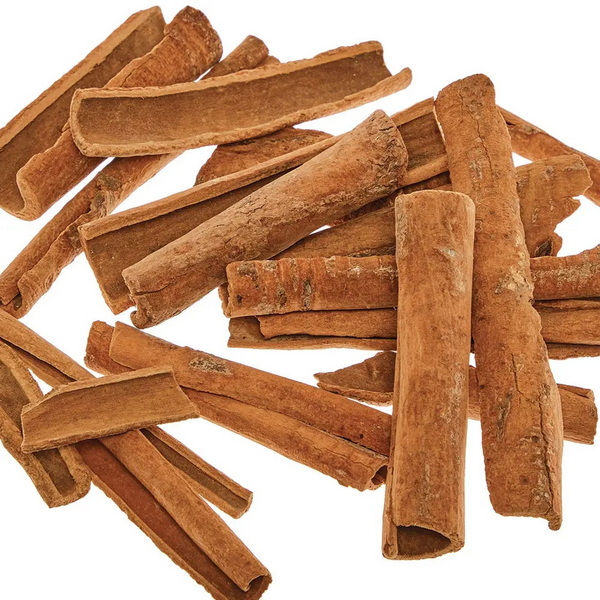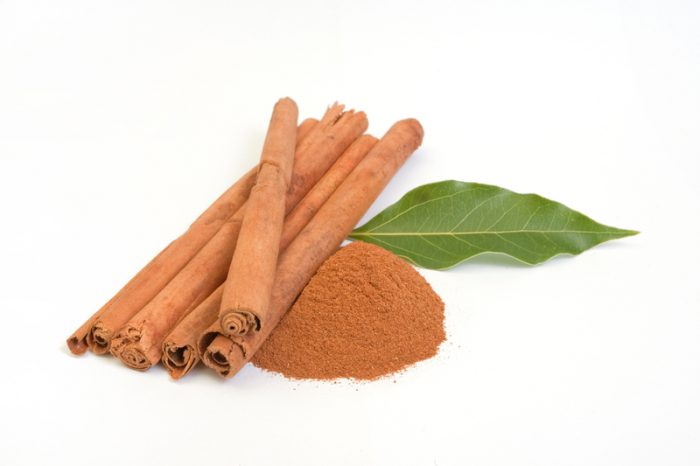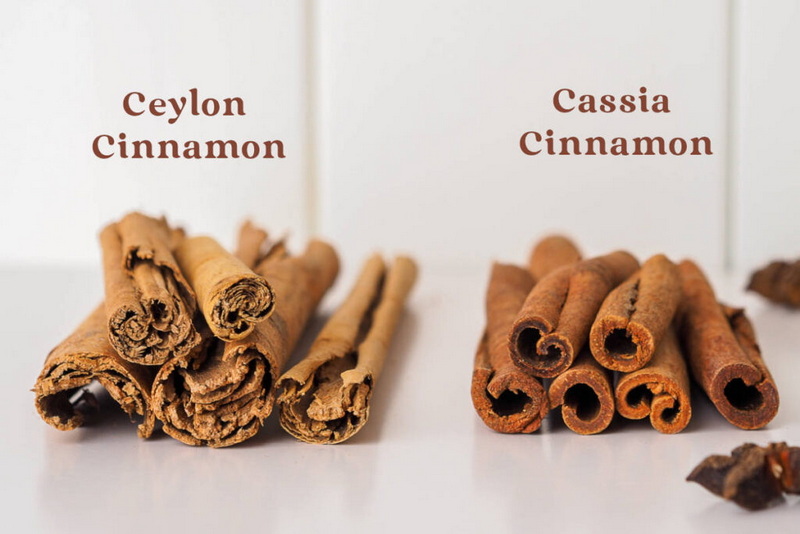Content Menu
● Introduction to Cinnamon
>> Cinnamon Varieties
● Cinnamon Bark vs Cinnamon Extract
>> Cinnamon Bark
>> Cinnamon Extract
● Chemical Composition
>> Cinnamon Bark Composition
>> Cinnamon Extract Composition
● Uses of Cinnamon Bark and Extract
>> Cinnamon Bark Uses
>> Cinnamon Extract Uses
● Comparison of Flavor Profiles
>> Cinnamon Bark Flavor
>> Cinnamon Extract Flavor
● Health Benefits
>> Cinnamon Bark Benefits
>> Cinnamon Extract Benefits
● Choosing Between Cinnamon Bark and Extract
>> For Cooking
>> For Supplements
● Comparison with Other Cinnamon Products
>> Cinnamon Oil
>> Cinnamon Leaf
● Health Considerations
>> Coumarin Content
● Cultural Significance
>> Historical Use
>> Modern Use
● Conclusion
● FAQ
>> 1. What is the main difference in flavor between cinnamon bark and cinnamon extract?
>> 2. Which type of cinnamon is better for cooking?
>> 3. What are the health benefits of cinnamon extract?
>> 4. How does cinnamon bark compare to cinnamon leaf in terms of flavor?
>> 5. Is cinnamon extract more expensive than cinnamon bark?
● Citations:
Cinnamon is one of the most widely used spices globally, known for its warm, sweet, and spicy flavor. It is derived from the bark of trees in the h3Cinnamomumh3 genus, with the two most commercially significant types being Cassia and Ceylon cinnamon. This article will delve into the comparison between cinnamon extract and cinnamon bark, focusing on their flavor profiles, uses, and benefits.

Introduction to Cinnamon
Cinnamon has been a staple in many cuisines for centuries, not only for its flavor but also for its medicinal properties. The bark of the cinnamon tree is harvested, dried, and rolled into quills or ground into a fine powder for use in cooking and traditional medicine.
Cinnamon Varieties
- Cassia Cinnamon: Known for its strong, spicy flavor and high coumarin content, Cassia is widely used in commercial products due to its affordability and intense flavor.
- Ceylon Cinnamon: Often referred to as "true cinnamon," it has a milder, sweeter taste with low coumarin levels, making it a preferred choice for health-focused products.
Cinnamon Bark vs Cinnamon Extract
Cinnamon bark and cinnamon extract are both derived from cinnamon trees but differ significantly in their preparation, flavor, and usage.
Cinnamon Bark
Cinnamon bark is the dried inner bark of the cinnamon tree. It is commonly used in cooking, either whole or ground into a powder. The bark contains oils rich in cinnamaldehyde, which gives it a strong, warm aroma.
Cinnamon Bark Flavor Profile: The flavor of cinnamon bark is intense and warm, with sweet and woody notes. It is ideal for adding depth to dishes and is often used in baked goods, desserts, and savory dishes.
Cinnamon Extract
Cinnamon extract is a concentrated form of cinnamon, often standardized to contain specific active compounds like cinnamaldehyde and polyphenols. It is commonly used in dietary supplements and as a natural flavoring agent.
Cinnamon Extract Flavor Profile: The flavor of cinnamon extract is more concentrated than cinnamon bark, making it suitable for applications where a strong cinnamon taste is desired without the bulk of the bark.
Chemical Composition
The chemical composition of cinnamon bark and extract differs, which affects their flavor and use.
Cinnamon Bark Composition
Cinnamon bark contains a high percentage of cinnamaldehyde, which is responsible for its strong flavor and aroma. It also contains smaller amounts of eugenol, a compound known for its analgesic and anti-inflammatory properties.
Cinnamon Extract Composition
Cinnamon extract is standardized to contain specific levels of active compounds, including cinnamaldehyde and polyphenols. This standardization ensures consistency in flavor and bioactivity.
Uses of Cinnamon Bark and Extract
Both cinnamon bark and extract have various uses in cooking, traditional medicine, and dietary supplements.
Cinnamon Bark Uses
- Cooking: Used in baked goods, desserts, and savory dishes for its flavor.
- Traditional Medicine: Used to treat gastrointestinal issues, stimulate appetite, and manage infections.
Cinnamon Extract Uses
- Dietary Supplements: Used for its metabolic and antioxidant benefits.
- Natural Flavoring: Added to foods and beverages for a concentrated cinnamon flavor.

Comparison of Flavor Profiles
The flavor profiles of cinnamon bark and extract are distinct due to their different compositions.
Cinnamon Bark Flavor
Cinnamon bark has a rich, warm, and slightly sweet flavor, making it versatile in both sweet and savory dishes.
Cinnamon Extract Flavor
Cinnamon extract has a more intense and concentrated flavor than cinnamon bark, making it ideal for applications where a strong cinnamon taste is desired.
Health Benefits
Both cinnamon bark and extract have been associated with several health benefits.
Cinnamon Bark Benefits
- Digestive Health: Helps with gastrointestinal issues and stimulates appetite.
- Antimicrobial Properties: Effective against certain bacteria and parasites.
Cinnamon Extract Benefits
- Metabolic Health: Used in supplements for blood sugar support and weight management.
- Antioxidant Properties: Rich in polyphenols, which help protect against oxidative stress.
Choosing Between Cinnamon Bark and Extract
The choice between cinnamon bark and extract depends on the intended use and desired flavor profile.
For Cooking
Cinnamon bark is preferred for its warm, aromatic flavor and versatility in recipes.
For Supplements
Cinnamon extract is ideal due to its standardized bioactive compounds and concentrated potency.
Comparison with Other Cinnamon Products
Cinnamon bark and extract can also be compared with other cinnamon products like cinnamon oil and leaf.
Cinnamon Oil
Cinnamon oil is more concentrated than cinnamon extract, with a stronger flavor. It is obtained directly from the bark through distillation and is used in aromatherapy and as a flavoring agent[6].
Cinnamon Leaf
Cinnamon leaf oil has a lighter, more clove-like scent due to its high eugenol content. It is used for its analgesic and anti-inflammatory properties[1].
Health Considerations
When using cinnamon products, it's important to consider health implications, especially regarding coumarin content.
Coumarin Content
Cassia cinnamon contains a higher amount of coumarin compared to Ceylon cinnamon. High coumarin intake can be harmful, so it's advisable to use Ceylon cinnamon for health benefits[5].
Cultural Significance
Cinnamon has significant cultural and historical importance, being a prized spice in ancient trade routes.
Historical Use
Cinnamon was highly valued in ancient civilizations for its flavor and medicinal properties. It was used in traditional medicine and as a form of currency in some cultures.
Modern Use
Today, cinnamon is used globally in various cuisines and traditional practices. Its versatility and health benefits have made it a staple in many households.
Conclusion
In conclusion, cinnamon bark and cinnamon extract offer distinct flavor profiles and uses. Cinnamon bark provides a warm, aromatic flavor suitable for cooking, while cinnamon extract is more concentrated and often used in dietary supplements. Understanding these differences can help in selecting the right form of cinnamon for specific applications.

FAQ
1. What is the main difference in flavor between cinnamon bark and cinnamon extract?
Cinnamon bark has a warm, slightly sweet flavor, while cinnamon extract is more intense and concentrated.
2. Which type of cinnamon is better for cooking?
Cinnamon bark is generally preferred for cooking due to its aromatic flavor and versatility in recipes.
3. What are the health benefits of cinnamon extract?
Cinnamon extract is used for its metabolic and antioxidant benefits, often in dietary supplements for blood sugar support and weight management.
4. How does cinnamon bark compare to cinnamon leaf in terms of flavor?
Cinnamon bark has a strong, warm flavor, while cinnamon leaf oil has a lighter, more clove-like scent due to its high eugenol content.
5. Is cinnamon extract more expensive than cinnamon bark?
The cost of cinnamon extract can vary based on purity and concentration, but it is often more expensive than cinnamon bark due to its standardized bioactive compounds.
Citations:
[1] https://cremefilledchurros.com/cinnamon-bark-vs-cinnamon-leaf/
[2] https://www.livestrong.com/article/505050-cinnamon-extract-vs-ground-cinnamon/
[3] https://pmc.ncbi.nlm.nih.gov/articles/PMC4003790/
[4] https://www.frontiersin.org/journals/chemistry/articles/10.3389/fchem.2022.896253/full
[5] https://www.healthline.com/nutrition/ceylon-vs-cassia-cinnamon
[6] https://tahiro.com/blogs/education/cinnamon-oil-vs-cinnamon-extract






























